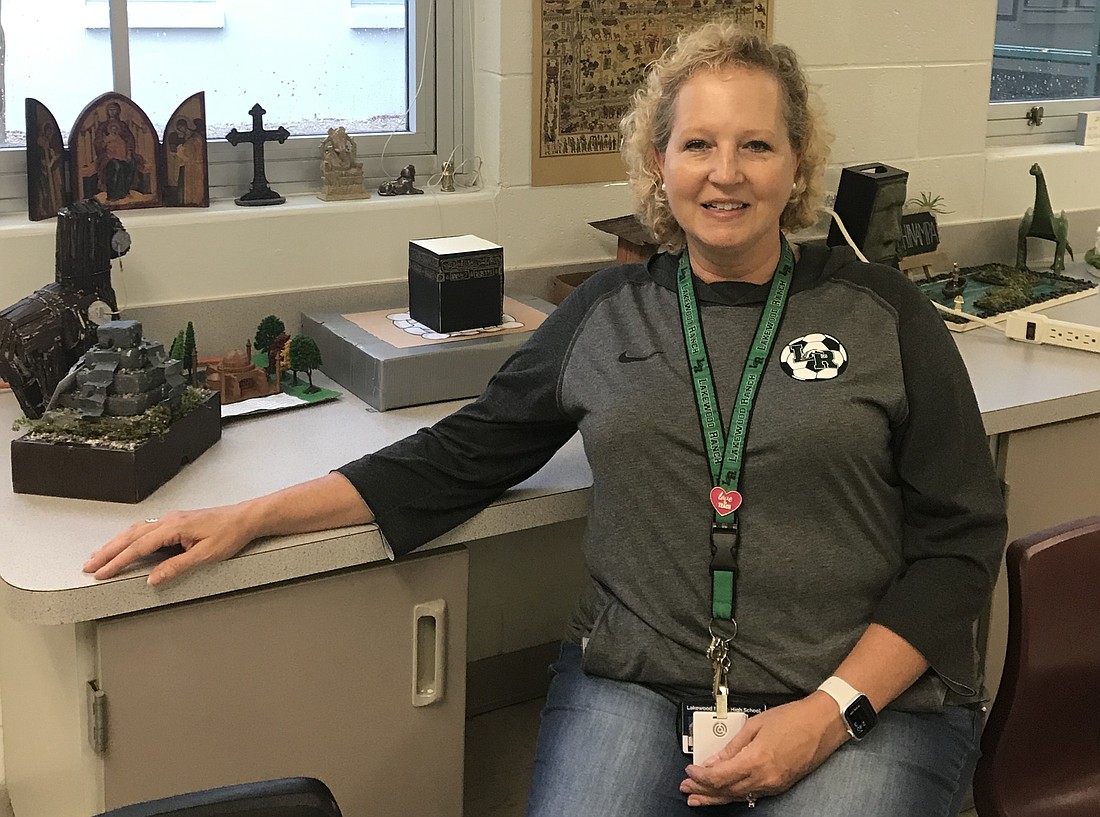- July 26, 2024
-
-
Loading

Loading

There are times when Patty Haeussler’s social studies classroom at Lakewood Ranch High School becomes a morgue.
Students gather in groups to do autopsies. Their victims? Civilizations.
Haeussler instructs her students to take an empire, such as the Song dynasty in China, and go from head to toe examining different aspects.
The head could represent the political leader while the feet are the workers, hands are the artistic achievements, and the heart could be the belief system.
Students conduct an autopsy explaining what caused the downfall of the civilization.
Autopsies are just one way Haeussler, who in August was named the Social Studies Teacher of the Year by Florida Council for the Social Studies, makes her social studies classes more engaging.
Haeussler remembered when she was a student in history class, and the class was simply about memorizing facts, times and dates. Those days are long gone.
In today’s social studies classes, Haeussler said that with globalization and the way the world is changing, it’s important for students to see events from different perspectives. She wants them to critically think about the moments in history, to read primary documents and to listen to stories about the events and determine different interpretations of events.
“We try to get students involved with different projects to focus more on problem solving and skill building,” Haeussler said. “They have to know the contents of the course, but we want them to be able to use the content and apply it to different situations in history. We want students to approach either the past or even the present thinking about perspectives and interpretation in history.”
Through various resources and projects, including the civilization autopsies, Haeussler finds ways to bring events that occurred years or even centuries ago to the present.
For example, her Advanced Placement World History class will study the bubonic plague spreading from Asia into Europe and the waves of the plague. With the COVID-19 pandemic ongoing, Haeussler will be able to have her students better understand what occurred with the bubonic plague.
Her class also goes through a trial. The defendant is Genghis Khan, the Mongolian leader who conquered large parts of central Asia and China with his descendants expanding the empire even farther to other countries, establishing the largest land empire in history. He killed many people while also granting religious freedom, abolishing torture and encouraging trade.
Students play different roles in the trial, such as the prosecution and defense, and use what they’ve learned in class to defend their arguments as to whether Khan should be sentenced for his crimes against humanity.
What Haeussler said she finds most interesting about history is how “humans are the same throughout history,” which allows students to connect to history,
“I just love comparing cultures and regions,” Haeussler said. “I love to see students make those connections to the past and learn what has stayed the same, what has changed and why.”